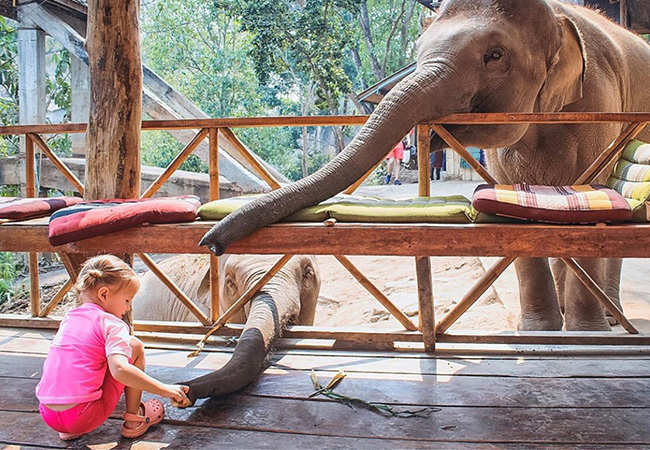
5 Tips to Help Your Kids Thrive (From a Missionary Mom)
When my now-husband first asked me out, I had a mini-crisis. I didn’t know if he was interested in living cross-culturally, and I couldn’t imagine spending my adulthood any other way. I also couldn’t imagine raising kids (should I have them) any other way.
I’m a Third Culture Kid (TCK) myself. I spent my childhood in Asia, and I loved growing up overseas so much that I wanted the same experience for my own children.
In time, I came to surrender both my future and that of my children to God’s good plans — even if it meant staying in America the rest of my life.
God did lead me and my family back to Asia, and now I’m in the trenches of raising my own TCKs.
If you’re considering missions, you might hesitate at the thought of what it might do to your kids. I’ve talked to a lot of parents who’ve struggled through that fear too. From their experience and mine, let me share five tips to help your family thrive cross-culturally.
1. Invest in integrating into your host culture.
“The opportunity to learn another culture and language is such a gift to your kids. Don’t waste it.” |
|---|
The opportunity to learn another culture and language is such a gift to your kids. Don’t waste it. “Mainstream” your kids in the local culture when you can. Find a local school, join local extracurriculars, hire a language tutor for your kids, or choose housing in a neighborhood of locals rather than an expat enclave.
I expected to homeschool my kids because putting them in local schools was scary for me at first. But we chose a neighborhood elementary school, and we (including our kids) have come to love it. The educational philosophy and values are different from what we hold dear in the West, but some of those differences have great benefits.
2. Don’t force integrating into your host culture.
Many a TCK has grown up to resent their parents for valuing the ministry over their needs and spiritual health. If local schools will significantly compromise your kids’ academic or spiritual development, don’t send your kids there. Choose an international school or homeschool option instead. If learning the local language is too much for your kids, don’t sweat it. Allow them the time and space they need to transition well, and reconsider it down the road.
Our kids attend local schools but their best friends are from an expat, Christian family. They talk to each other in the local language — a second language for all of them — and they bond over the experience of being the only foreigners in class. While we want them to have local friends too, it’s most important to us that they feel the deep connection of friendship, with whomever that might happen.
3. Let go of trying to give your kids a normal childhood.
“Your children will not be ‘normal.’ That’s a hard desire to let go. But when you do, you’ll find tremendous freedom!” |
|---|
Your children will not be “normal” compared to kids from your home country. Neither will they be “normal” in your host country. That’s a hard desire to let go. But when you do, you’ll find tremendous freedom! You don’t have to keep up with either culture; you can, in wisdom and faith, embrace the unique story God is giving your kids. (And is society’s “normal” what you want for your kids anyway?)
I feel this most keenly around the holidays. We live in a country that doesn’t celebrate Christmas, and I’m tempted to feel sad about all our kids miss out on. But I also remember what December is like in America — so packed with parties, church services, travel, and shopping that you hardly have time to catch a breath before the big day arrives. I look at our December calendar here, with its distinct lack of pre-planned events, and I’m grateful that we can focus on our family’s priorities for celebrating the holiday.
4. Always pursue a positive attitude toward your host culture.
We adults go through a great deal of stress living away from our home country. We need to be honest about this challenge of cross-cultural living. (In my experience it gets easier over time but never goes away.) However, your kids will — and should — feel more deeply attached to the local culture than you do, especially if they were young when you moved there. It will, in a large sense, be their home.
A couple of years ago, I returned for the first time in 25 years to the country where I spent my childhood. I was surprised how familiar everything still seemed. The food, the sounds of the language, the smells, the trees, the flowers — they all felt like home, even though I hadn’t been there since I was 11.
My kids will likely feel the same way about where we live now. I hope they do. For me to speak ill of it would either attack their sense of home or build into them an attitude of cultural superiority.
5. Speak to them early and often of their true home.
One of the painful aspects of cross-cultural life is the loss of belonging. I will be a perpetual foreigner in my host country. Yet I no longer feel at home in America either. This sense of displacement is even more pronounced for TCKs.
“Every time my kids feel the ache of not belonging, I want them to anticipate their only true home — the future one.” |
|---|
My heart often longs for home but doesn’t know where that home is. And I’m grateful for that. Scripture tells stories of sojourners, exiles, and foreigners — culminating in the final culture-crosser, Jesus. We who follow Him must identify with that story first, above any narrative of our earthly country, culture, or even family. Those of us who literally belong nowhere on earth probably find this easier.
Every time my kids feel the ache of not belonging, I want them to anticipate their only true home — the future one. I don’t want this hope to be a dismissive platitude in our family; I want it to define us to the core of our beings.
It’s true that a cross-cultural life requires sacrifice, but I’ve found that the more we give to Christ, the more He returns to us in blessing upon blessing. To me, the deepest blessings of a cross-cultural life more than compensate for the sacrifices.
Your kids probably won’t be as intimidated as you about entering a new culture. They adapt far more quickly than us. They’ll learn to feel comfortable anywhere in the world. And the community we experience with fellow culture-crossers, no matter which particular cultures they’re crossing, helps sustain us on the journey.
Don’t let the fear of raising your kids overseas stop you from going. You won’t be robbing them of any essential childhood experiences. Instead, you’ll give them an incredible gift.
Crossworld worker Chloe Wilson (a pseudonym) and her family make disciples in East Asia.
.png)


 By Crossworld
By Crossworld










